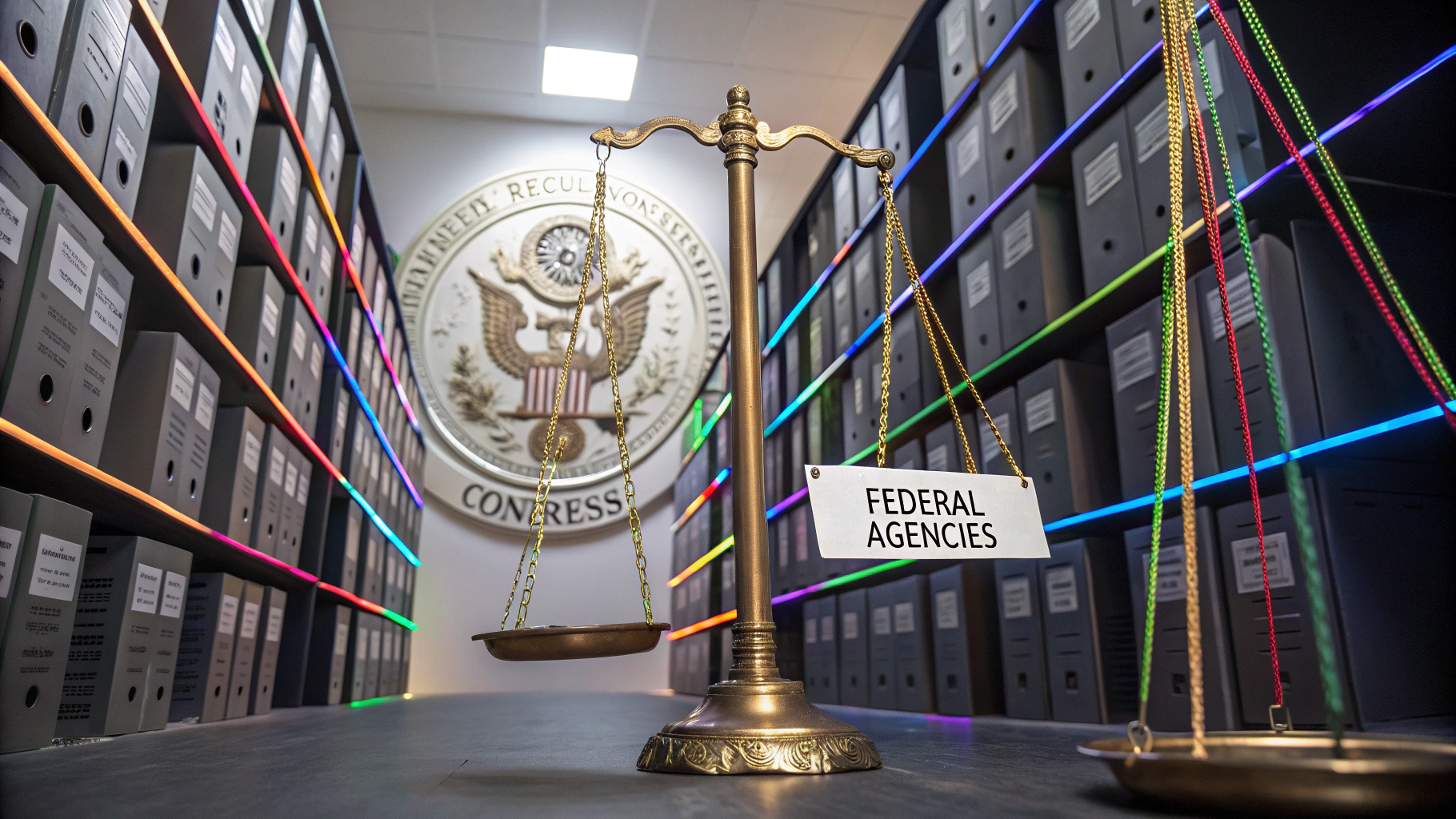Congressional ethics committees are like the hall monitors of Capitol Hill. They catch lawmakers misbehaving, but with some limited power and a huge helping of drama. The House Committee can impose actual sanctions and investigate on their whim, while the Office of Congressional Ethics (OCE) can only recommend investigations. OCE operates in secret, trying to keep things on the down-low, while the Committee holds tighter to its confidentiality. Want to know about the juicy details of their operations? Stick around.

When it comes to keeping Congress in check, the ethics committees play an essential role, even if most people don't know they exist. They're like the secret guardians of congressional conduct, keeping a watchful eye on lawmakers.
The House Committee on Ethics, established in 1967, boasts an even split of members from both major parties. Meanwhile, the Senate Select Committee on Ethics works its magic in the Senate, though the specifics of its makeup are a bit murky—classic congressional opacity.
Then there's the Office of Congressional Ethics (OCE), created in 2008 to up the ethics game in the House. This board, made up of six private citizens, is like the fresh set of eyes Congress desperately needed. They can sift through complaints from the public, which is a nice touch, considering most ethics complaints usually come from within the hallowed halls of Congress itself. Talk about keeping it in the family!
Now let's talk authority. The House Committee on Ethics can actually impose sanctions—think of it as the principal who can give you detention. The OCE? Not so much. They can recommend investigations but lack any real teeth. They can't issue subpoenas, which is a bummer for those seeking hard-hitting investigations. The Committee on Ethics does have that power, and they can launch investigations without an OCE nudge. [The OCE operates under strict confidentiality rules; information obtained during investigations remains confidential until public release. The House Committee on Ethics has the ability to conduct investigations based on allegations of sexual harassment or misconduct.]
Investigative processes vary, too. OCE needs at least two members to agree there's a "reasonable basis" for an investigation, while the Committee on Ethics can just decide to investigate at will.
Also, OCE has a structured timeline; the Committee does whatever it wants, whenever it wants. It's like the Wild West over there.
And let's not forget transparency. The OCE publishes reports, while the Committee keeps things a little more hush-hush.
Frequently Asked Questions
Who Can File a Complaint With the Ethics Committee?
Anyone can file a complaint with the ethics committee. Yes, anyone.
Sworn complaints? Sure. Anonymous whispers? Why not! Even the news can spark an investigation.
All they need is some basic info—names, addresses, maybe a few documents. No fancy format required.
But, if you're not a member of Congress, you'll need a member to back your complaint. So, good luck finding a friendly face.
It's a wild world of accountability—or lack thereof.
What Types of Violations Do Ethics Committees Investigate?
Ethics committees plunge into a wild mix of violations.
Think campaign fund misuse—yep, that's a biggie. They also check financial disclosures because, apparently, honesty matters.
Gifts? Sure, but not the shady kind. Misconduct like harassment? Under the microscope.
And let's not forget about travel perks—using them improperly can land someone in hot water.
It's a circus of accountability, where even a slip can lead to serious consequences.
Welcome to the show!
How Lengthy Are Typical Ethics Investigations?
Typical ethics investigations? They can drag on forever. Months, sometimes years. Seriously, there's no clock ticking here.
It starts with a slow crawl—gathering info, chatting with witnesses, and no subpoenas in sight.
Then, if they're feeling ambitious, they form subcommittees with actual power. But don't expect much public drama until something juicy happens.
It's all behind closed doors, and the public? Well, they're mostly just left in the dark.
Are Committee Proceedings Open to the Public?
Committee proceedings? Well, it's a mixed bag. Most of the time, they're behind closed doors. Secretive, right?
But wait—if the committee feels generous, they might let the public peek in during certain hearings. How thoughtful!
No blanket rule for openness, though. Just a majority vote deciding what's public or not.
And guess what? Financial disclosures? Once public, now they're a no-show. Transparency? It's a work in progress, folks.
What Happens if a Member Is Found Guilty of Misconduct?
If a member gets caught red-handed in misconduct, things get serious.
They might face expulsion, but good luck getting that two-thirds vote. A censure? Sure, it's just a fancy slap on the wrist.
Reprimands? Even less severe. Fines? Yep, those too.
Oh, and if it's a felony? Well, that's a whole different ballgame. They're basically sidelined.
It's like a game of musical chairs, but with much higher stakes.









2 comments
Comments are closed.